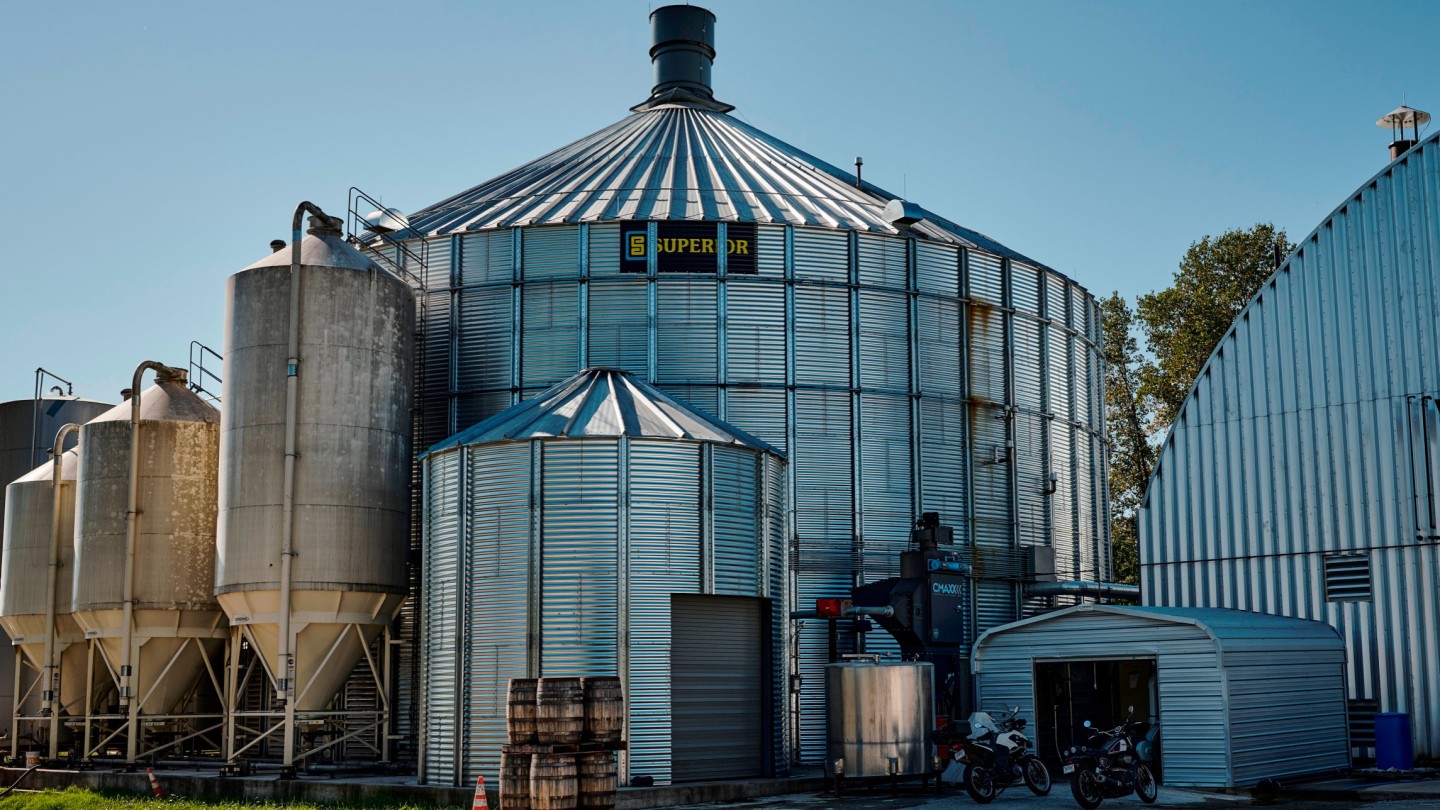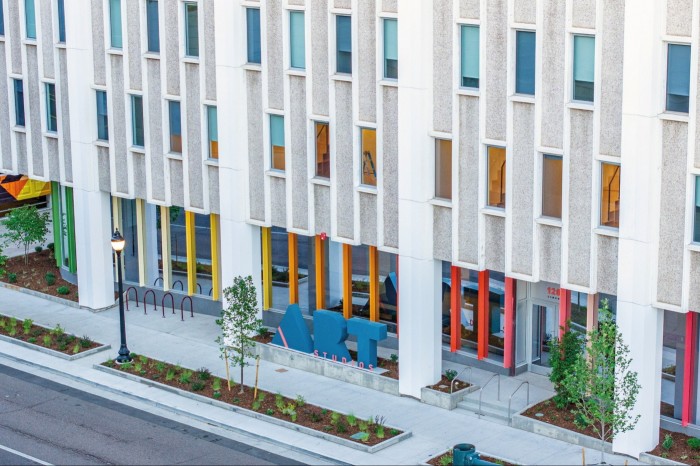Investors seek niche property assets in hunt for better returns

Simply sign up to the Property sector myFT Digest -- delivered directly to your inbox.
The 47-year-old Bollywood film star Vivek Oberoi is not a typical property investor — and his latest venture, building a luxury hotel on an island in the Ganges River in India, is not a typical property investment.
Combining his own capital with that of other wealthy Indians, Oberoi has raised $40mn of the $160mn he needs for the spa resort, in the state of Uttarakhand.
This may be a riskier prospect than the city centre office blocks and shopping malls that form the bedrock of commercial real estate, but Oberoi is after bigger-than-average returns.
On his last property investment, a series of large-scale housebuilding projects for low-income workers, he says he achieved a profit margin of around 20 per cent per year, between 2011 and 2017. This time, by tapping into the fashion among the wealthy for wellness, Ayurvedic medicine and sustainable travel, he hopes to make even more.
“There is a huge demand for luxury right now’’, he says. And this investment fits in the sexy part of my portfolio,” — a reference to the roughly 40 per cent of his investment pot comprising high-risk, high-return investments, including private equity and venture-capital deals sourced in India.

Uncertainties over the future of the office, and the continued poor prospects for retail on the high street, have combined with the higher cost of borrowing to push wealthy investors around the world further into niche property sectors. As well as luxury hospitality, commercial housing, industrial warehouses and self-storage buildings are all popular. So is hunting for unusual properties, such as, in one case, an American whiskey distillery.
Globally, total investor allocations to property fell 21 per cent last year to $1.12tn, as rising interest rates began to bite and uncertainty about the post-pandemic future of office blocks mounted, according to data from Knight Frank. But, while institutions such as pension funds scrambled to get out, cutting exposure by 28 per cent to $440bn, and holdings by trusts and other sources dropped 29 per cent to $222bn, private investment by individuals — rich people and their families — dropped only 8 per cent to $455bn.
This shift is remarkable. Knight Frank says it is the first time on record that rich investors have allocated more than institutions to property.
The $195bn allocation that rich investors made to the residential sector last year (which is separate from spending on their own luxury homes) was double the 10-year average. Popular projects include building new apartments to rent out and — in particular today — converting offices to housing.
“The lion’s share is going into living,” says Nancy Curtin, chief investment officer of AlTi Tiedemann Global. She is talking about the property allocations she makes for the company’s wealth clients, comprising typically between 5 per cent and 15 per cent of their total portfolio, which can be anything from $25mn and $1bn in size. The majority of the company’s wealth clients, who represent a total of $49bn in assets, are based in the US or Europe.
“Build-to-rent, build-to-own, residential apartments for sale, student accommodation: the overriding secular tail wind is that there isn’t enough supply to meet demand,” she says.
To get these deals off the ground, rich individuals are relying less on loans in today’s high-interest-rate markets and instead digging deeper into their own pockets.
“A couple of years ago, with rates on loans at 2 or 3 per cent, any real estate deal was profitable,” says Randy Nichols, a developer in Denver, in the US. He has just completed a $55mn project — the conversion of a downtown vacant office building into 190 micro apartments for rent — with money raised from a group of local high-net-worth investors (and the rest borrowed from the bank). “But, today, you can’t sell the conventional deals. Investors have changed their strategy: you have to reach for the returns,” he says.
Michael Sonnenfeldt, founder and chairman of Tiger 21, a network of 1,300 super-rich people, based mainly in the US, with a combined net worth of $150bn, says that residential deals like Nichols’s are particularly attractive to the group’s members right now.
America accounted for $302bn of the total $455bn spent by wealthy individuals and families in property last year, according to Knight Frank.

Private investors in the US especially like converting office buildings bought at a discount from developers unable to service loans, due to rising interest rates, or properties from hotel and motel companies that have failed to recover from travel restrictions following the start of the pandemic.
“Rising interest rates mean you have a wave of forced sellers,” Sonnenfeldt says. As institutions have left the market, Tiger 21 members are well placed to find bargains that can generate big returns. “Today, we stock pickers are at an advantage over institutions,” Sonnenfeldt says. “If you can find an unfinished project and buy it out of distress, this is a great time.”
But it’s not only about housing, as Oberoi’s example shows. Since the start of the pandemic, Tiger 21 members have also shown a growing interest in logistics and self-storage, high-tech and biotech parks, and sites for renewable energy plants, Sonnenfeldt says.
Last year, property developer Darek Bell bought a whiskey distillery and storage site in Kentucky, with $25mn raised from three wealthy local entrepreneurs, alongside some of his own money.
The three made their money in fintech, food and beverage and banking (Bell made his fortune in property). Once the site’s first building has been renovated, revenue from storing and producing whiskey there will finance the renovation of another four. Investors will exit in 2027, when the site and the business is sold for, Bell hopes, $100mn.

The four warehouses provide a handy insurance policy, he notes: if something goes wrong with the whiskey business, they can be used as standard industrial warehouses, a thriving sector. The returns exceed those available from downtown offices or the retail sector, according to Bell.
“At a time when you can get Treasuries at 5 per cent, everyone wants a better rate of return on property. You have to have something compelling for investors today,” he says.
Investment approaches, and amounts, vary. While Bell raised his $25mn from three investors for his whiskey project, Nichols needed 14 high-net-worth investors — each of whom contributed between $100,000 and $2mn — to find the $15mn for his office conversion. All Denver locals, their fortunes have been made in sectors as diverse as technology, truck-trailer manufacturing and supplying sand and grit to de-ice roads.
The US trend applies across the globe, as rich investors look for a niche. Without the lengthy approvals required from lenders or the exhaustive due diligence process common at institutions, they can move fast on opportunities that institutional investors are now avoiding.
One in three rich Europeans who invest in property have an allocation to the build-to-rent sector (36 per cent), and just under half invest into the hotel and leisure sector (48 per cent), according to Knight Frank.
Rich investors from mainland China increased their allocations to property by a quarter last year, to $6.3bn, helping the total allocation to Asia by rich investors to 30 per cent, despite wider flows into Asia’s property market falling by 21 per cent, according to the agency.
“With borders reopened, mainland China and Hong Kong clients have now started to travel again, triggering more interest in real estate debt,” says Jyrki Rauhio, regional head of credit advisory, Asia Pacific, for HSBC Global Private Banking. He adds that allocations by rich Asians have grown most rapidly in Singapore, Australia and Hong Kong.
“[Rich investors] do not need to go through a lengthy investment committee process,” says Henry Chin, global head of investor thought leadership, Asia Pacific for estate agency CBRE. “We have seen some [rich investors] do 100 per cent equity deals,” he says, adding that many plan to refinance when interest rates fall.
Bell’s previous property deals used some bank finance to boost returns; this time he relied entirely on the cash from his investors. The shift to less or no borrowing is also typical among the developers that Nichols knows, all of whom have had to switch to more exotic, higher returning deals, to attract investors.
“A couple of years ago, cheap money boosted profits, meaning that offerings sold out in a day or two,” he says. “Today, the conventional deals just don’t sell any more, there aren’t the returns.”
The case of Cal Simmons, a super-rich serial entrepreneur based in Virginia, US, indicates why high-net-worth investors are cooling to conventional property sectors.

Five years ago, he invested $150,000 with a local developer to renovate a tired five-storey office building in downtown Alexandria. The idea was that the building would increase in value — thanks to the improvements and rising prices in the wider market. This would allow the investors to refinance, pay themselves back their initial investments, and then draw a secure long-term income from renting the building out to commercial tenants.
But, today, Simmons says, the bank thinks the building is worth less than the investors paid for it — he disagrees — and there is no prospect of refinancing with a larger loan.
He is much more focused on early-stage equity investing than on property: recently he has funded two local entrepreneurs to build a pickleball centre, and put up early-stage finance for a dating app.
So, when the same developer approached him this year for a similar project, he passed. “It’s a terrific building, he is a great operator and five years ago I would have happily gone in. But, today, the risk reward doesn’t work: now that my cash can earn me 5 per cent risk-free, it just doesn’t make sense,” he says.
This article is part of FT Wealth, a section providing in-depth coverage of philanthropy, entrepreneurs, family offices, as well as alternative and impact investment
Comments